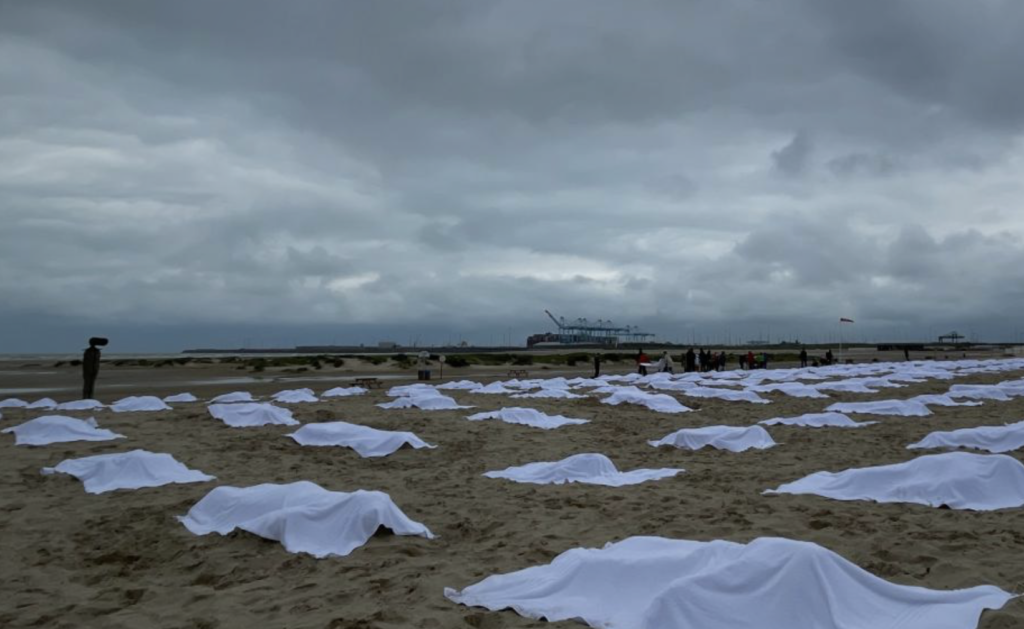Hundreds of 'sand graves' have been placed on the beach of Zeebrugge by a Flemish migrants rights organisation placed, making it look like a mass grave of washed-up bodies, to call out European migration policy.
For Vluchtelingenwerk Vlaanderen's symbolic action, 621 sand sculptures with human dimensions of babies, children and adults have been erected on Thursday, each symbolising a migrant who lost his or her life in the Mediterranean Sea in the first quarter of 2021.
"With this action, we want to create a shock effect and make the human toll of the failing migration policy more tangible," said Charlotte Vandycke, spokesperson for Vluchtelingenwerk Vlaanderen, in a press release.
On the towels placed over the sand graves, the words "Searching for a place for your towel? 621 people drowned searching for a place to live" are imprinted.
Related News
- NGOs threaten to sue regional governments for exporting weapons technology to Turkey
- Four migrants on hunger strike in Brussels sew mouths shut
"The cornerstone of any asylum and migration policy is the right to seek asylum. With the lack of sufficient legal entry routes, tougher external borders and a more difficult right to asylum, the emphasis is now on holding people back," she added.
The organisation has argued that this is not a humane solution and instead pushes people into the hands of people smugglers.
"We want to wake up Belgian politics and the European Union and show them that their approach does not work," Vandycke said.
The migration policy problem
According to the most recent figures from the International Organisation for Migration (IOM), around 832 migrant deaths have been recorded in the Mediterranean so far in 2021, whilst 1.2% of all attempted crossings end in fatality, up from 0.9% in 2020.
Many migrants do not meet the high conditions for a visa or fall outside the criteria for family reunification, meaning most of them "turn to rickety boats and people smugglers to reach Europe".
"What we need are more safe and legal entry routes for people in need of protection. Through a coherent and transparent policy on humanitarian visas, a structural resettlement policy with high annual quotas and a relaxation of the procedure and criteria for family reunification," said Vandycke.
The organisation has insisted that the Belgian government must "take on a pioneering role, boost that figure and outline a multiannual programme that corresponds to the real needs of people on the run."
Together with the NGO 11.11.11, it has worked on a Belgian growth plan for a more ambitious structural resettlement policy in order to go from 1,615 planned resettled refugees in 2021 to 3,000 in the coming years.
Vlaanderen Vluchtelingenwerk has also argued that the Belgian government should demand Europe to renew its collective rescue operation in the Mediterranean Sea.
Recently, the Office of the United Nations High Commissioner for Human Rights published a report which found that the European Union, through its migrant policy, is in part to blame for the deaths of migrants travelling across the central Mediterranean route.
It stated that what is happening to migrants on this route is the result of a failed system of migration governance, one that "fails to place the human rights of migrants at the centre of it".

